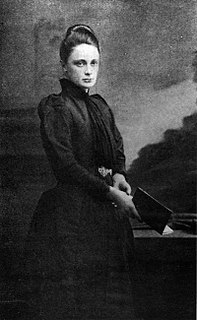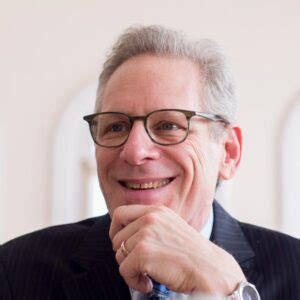A Quote by Allen W. Wood
Kant thinks of judgment as a special faculty or talent of the mind, not reducible to discursive reasoning but cultivated through experience and practice.
Related Quotes
I would call the attention of the reader to the difference between "reason" and "reasoning." Reason is a light, reasoning a process. Reason is a faculty, reasoning an exercise of that faculty. Reasoning proceeds from one truth to another by means of argumentation. This generally involves the whole mind in labor and complexity. But reason does not exist merely in order to engage in reasoning. The process is a means to an end. The true fulfillment of reason as a faculty is found when it can embrace the truth simply and without labor in the light of single intuition.
Kant regards the universalizability test for maxims as focused on a very special sort of situation: one where the agent is tempted to make an exception to a recognized duty out of self-preference. The universalizability test is supposed help the agent to see, in a particular case of moral judgment, that self-preference is not a satisfactory reason for exempting yourself from a duty you recognize. Kant thinks, as a matter of human nature, that this situation arises often enough and that we need a canon of judgment to guard against it.
It seems to us that in intelligence there is a fundamental faculty, the alteration or the lack of which, is of the utmost importance for practical life. This faculty is judgment, otherwise called good sense, practical sense, initiative, the faculty of adapting one's self to circumstances. A person may be a moron or an imbecile if he is lacking in judgment; but with good judgment he can never be either. Indeed the rest of the intellectual faculties seem of little importance in comparison with judgment.
There are two modes of acquiring knowledge, namely by reasoning and experience. Reasoning draws a conclusion and makes us grant the conclusion, but does not make the conclusion certain, nor does it remove doubt so that the mind may rest on the intuition of truth, unless the mind discovers it by the path of experience.
Virtue is the panacea for both body and mind. The virtuous person can be both healthy and happy. How is virtue to be cultivated? How can it express itself in daily practice? Through service to living beings, through seva. Virtue must flow through the triple channel of love, mercy and detachment, in order to feed the roots of seva.
The thing to keep in mind is that the answer to the question I often get - Are leaders born or made? - is an emphatic yes! All leaders are born, and all are made, through devoted practice of reflecting on experience to learn what's worked and what hasn't, good coaching and accountability pressure to grow, good luck, and, of course, some talent.
Kantian ethical theory distinguishes three levels: First, that of a fundamental principle (the categorical imperative, formulated in three main ways in Kant's Groundwork); second, a set of duties, not deduced from but derived from this principle, by way of its interpretation or specification, its application to the general conditions of human life - which Kant does in the Doctrine of virtue, the second main part of the Metaphysics of Morals; and then finally an act of judgment, through which these duties are applied to particular cases.
As with many metaphysical and religious questions, Kant thinks they lie beyond our power to answer them. If you can't stand the frustration involved in accepting this, and insist on finding some more stable position which affords you peace of mind and intellectual self-complacency, then you will find Kant's position "problematic" in the sense that you can't bring yourself to accept it. You may try to kid yourself into accepting either some naturalistic deflationary answer to the problem or some dishonest supernaturalist answer.
Worry is a state of mind based upon fear. It works slowly, but persistently. It is insidious and subtle. Step by step it “digs itself in” until it paralyzes ones reasoning faculty, destroys self-confidence and initiative. Worry is a form of sustained fear caused by indecision therefore it is a state of mind which can be controlled.
UG [universal grammar] may be regarded as a characterization of the genetically determined language faculty. One may think of thisfaculty as a 'language acquisition device,' an innate component of the human mind that yields a particular language through interaction with present experience, a device that converts experience into a system of knowledge attained: knowledge of one or another language.
































